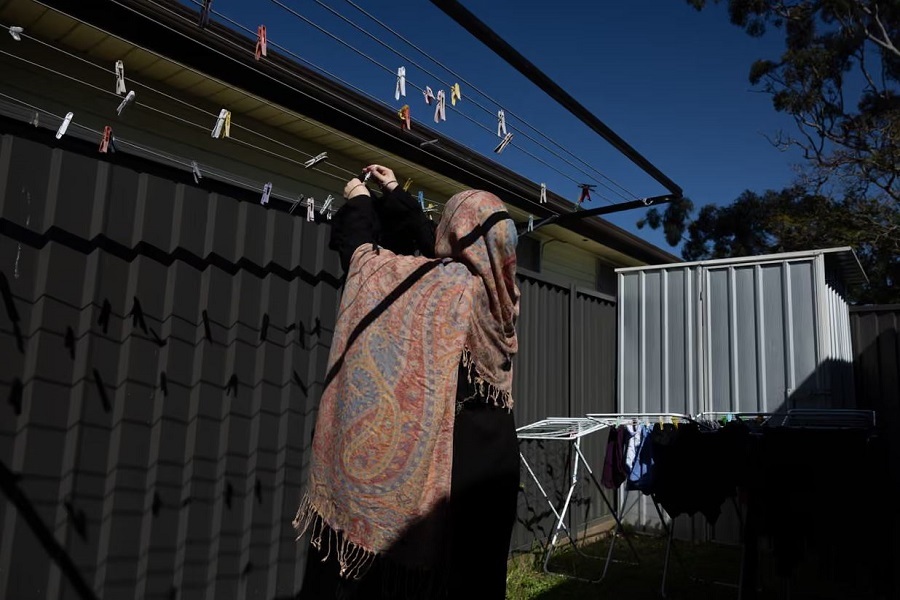‘I’d Rather Be Bored Than in Danger’: Muslim Women Speak Out on Islamophobia in Australia

A new government report has laid bare the persistence of anti-Muslim hate in Australia, warning of a sharp increase in incidents targeting women since October 2023. The findings echo data from Islamophobia Register Australia (IRA), which shows women and girls are the victims in 75% of all reports.
One of those voices is Sarah Alzoubi, who was 17 when she experienced harassment on a Sydney train in 2015. She recalls a man exposing himself before muttering the words “Islam” and “Muslim.” The experience changed how she moves around the city, The Guardian reported.
“I don’t go on with my headphones, I don’t touch my phone, I’m completely aware of my surroundings,” she said. “I know it makes more boring trips, but I’d rather be bored than be in danger.”
Read More:
The special envoy to combat Islamophobia, Aftab Malik, released his long-awaited report last week, saying Muslim women in particular “bear the rap” of these attacks. His comments reflect years of data showing women are disproportionately targeted, often in public settings and often for wearing the hijab.
Since the start of the Israeli war on Gaza, reports of Islamophobic incidents in Australia have risen by 530%, according to the IRA.
Alzoubi, now a mother, says her life has narrowed to areas of Sydney with larger Muslim communities. “I don’t know how people will react to me in public, being so visibly Muslim, and I can’t take that chance, especially when I have my son with me,” she said.
For Mariam Tohamy, a teacher and activist, the harassment is not new. She remembers being spat on in 2007. But an incident last December at a Kmart store in Bankstown, Sydney’s west, felt different.
She and her 10-year-old daughter were confronted by a woman who hurled boxes at them, made a throat-slitting gesture, and shouted “get f*** Allah.”
“That’s when I thought, yeah, that’s it. She’s there because I’m pro-Palestinian and obviously, wearing the hijab,” Tohamy said. She reported the case to police, but only heard back the following day after locals staged a protest outside the station. A 39-year-old woman was later charged with threatening violence and intimidation offences.
Read More:
Nora Amath, the IRA’s executive director, describes this pattern as “gendered Islamophobia.”
She says, “Islamophobia intersects with sexism, and attacks against Muslim women are often not just about their religion but also about control and degradation.” In the group’s latest report, all incidents of spitting were against women.
The impact is felt across communities. Imam Alaa Elzokm of Elsedeaq mosque in Melbourne says women in his congregation fear going out alone.
After graffiti reading “F*** off home” appeared on the mosque in May, those concerns deepened. The mosque hosts interfaith dinners and open days in an effort to counter stereotypes.
“We share a meal together, we’ll talk about those activities that are raising more awareness about who we are,” he said. “We say to them, ‘Look how similar we are, maybe not in colour, but in our values.’”
For Amath, the way Muslim women are perceived in Western societies fuels some of the hostility. “Some attackers feel justified in harassing them under the misguided belief that they’re helping liberate them,” she said.
“By attacking their headscarf or the hijab, the perpetrator may have that misguided belief that they’re actually liberating them.”
Despite the rise in attacks, the IRA warns the scale of the problem is even larger. Its research shows only 18% of cases are ever reported to police or official agencies. Many survivors cite mistrust and fear of authorities as reasons for staying silent.
Source: Agencies



